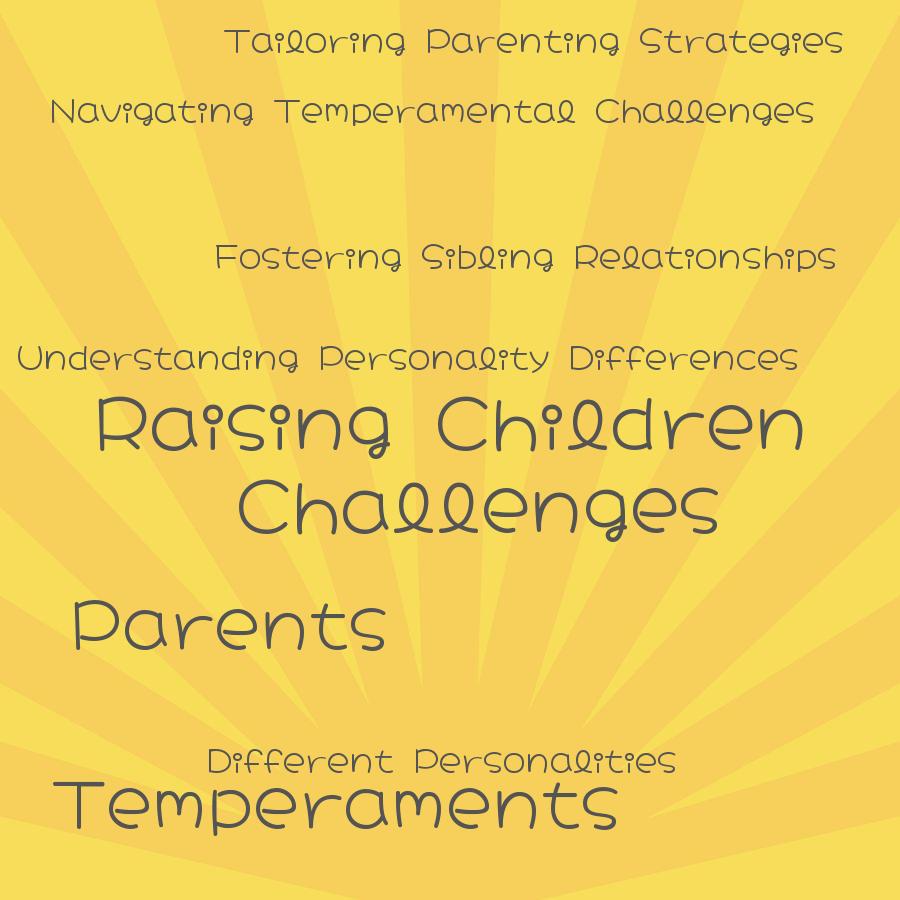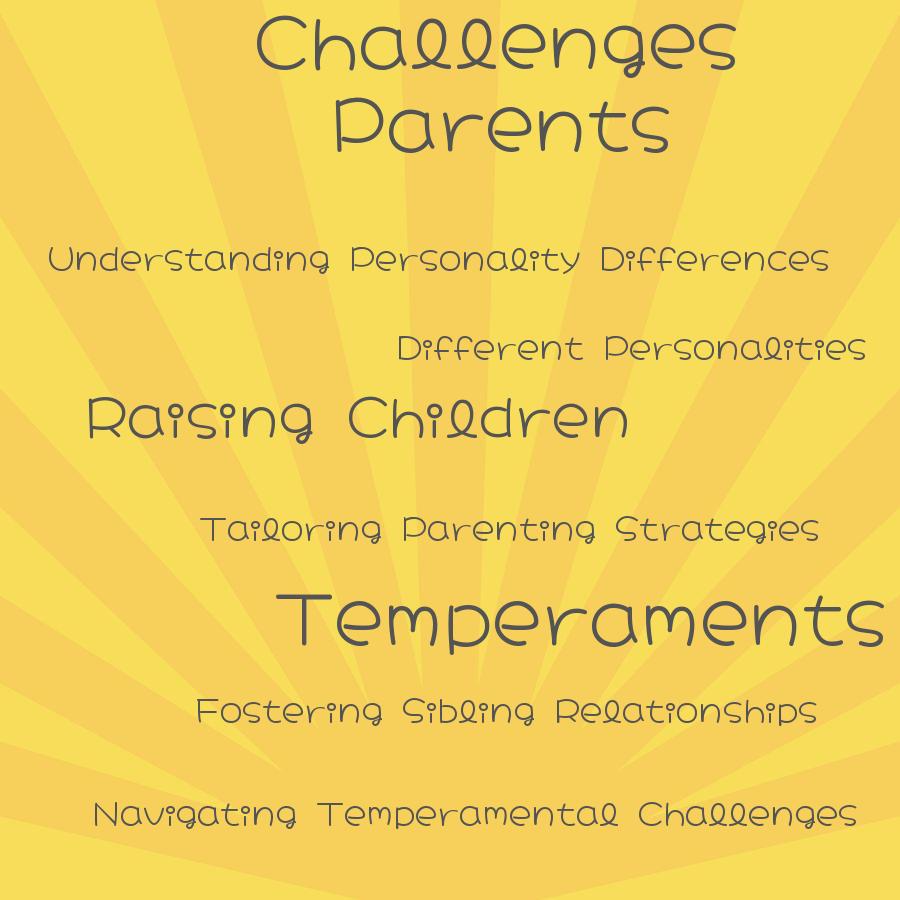Parents can handle the challenges of raising children with different personalities and temperaments by understanding each child’s unique traits, being patient and flexible, setting clear boundaries and expectations, and providing individualized support and guidance. It is also important for parents to communicate openly with their children, listen actively to their concerns, and foster a positive family dynamic that promotes respect, empathy, and cooperation.
As a parent, I always thought that raising children would be a straightforward task. After all, how hard could it be to teach them right from wrong and impart some life lessons? But as my kids grew up, I realized that parenting is not just about teaching morals and values.
It’s also about understanding their personalities and temperaments.
My two children couldn’t be more different from each other. My son is outgoing, adventurous, and never backs down from a challenge.
On the other hand, my daughter is quiet, reserved, and prefers to stay in her comfort zone. As they grew up together under the same roof with such contrasting personalities and temperaments- it was not always easy for me as a parent.
But through trial and error (and plenty of deep breaths), I have learned some valuable lessons on how to handle these challenges of raising children with different personalities and temperaments. In this blog post today- let’s explore some effective ways that parents can handle these challenges while still nurturing their child’s unique qualities!
Here You Will Learn:
Understanding Personality Differences


One of the most important things that parents can do when raising children with different personalities and temperaments is to understand these differences. As a parent, it’s easy to fall into the trap of expecting your children to be similar in their behavior and interests.
However, this approach can lead to frustration for both you and your child.
For instance, my son loves playing sports while my daughter prefers reading books or drawing pictures. Initially, I tried encouraging her to play sports like her brother but soon realized that it wasn’t something she enjoyed doing.
Instead of forcing her into activities she didn’t enjoy- I started exploring other options such as art classes or book clubs where she could express herself creatively.
Understanding personality differences also means recognizing how each child responds differently in certain situations- for example: one may need more alone time than the other after a long day at school or socializing with friends.
By acknowledging these individual needs – we as parents can create an environment where our kids feel comfortable being themselves without any pressure from us!
Navigating Temperamental Challenges
One of the most significant challenges that parents face when raising children with different personalities is navigating their temperamental differences. As a parent, it’s essential to understand that each child has their unique temperament and personality traits.
Some kids are naturally more sensitive, while others may be more impulsive or stubborn.
For me, this challenge became apparent when my son would often get into trouble at school for being too loud or disruptive in class. Meanwhile, my daughter struggled with anxiety and shyness in social situations.
To navigate these temperamental challenges effectively as a parent- I had to learn how to adapt my parenting style according to each child’s needs. For example- I found that using positive reinforcement worked well for encouraging good behavior in my son while providing emotional support helped ease anxiety symptoms for my daughter.
It’s also important not to compare your children’s personalities or try forcing them into molds they don’t fit into because every child is unique and special in their way!
Tailoring Parenting Strategies
One of the most important things I learned as a parent is that there is no one-size-fits-all approach to raising children. Each child has their own unique personality and temperament, which means that parenting strategies need to be tailored accordingly.
For example, my son thrives on challenges and competition. So when it comes to motivating him, I use games or activities with an element of competition involved.
On the other hand, my daughter prefers quieter activities like reading or drawing- so for her motivation comes from setting achievable goals.
It’s essential for parents to understand what works best for each child in terms of discipline too. While timeouts may work well with one child who needs time alone after misbehaving- another might respond better if you sit down and talk through why their behavior was inappropriate.
By tailoring our parenting strategies based on our children’s personalities and temperaments – we can create a more positive environment where they feel understood while also helping them develop into confident individuals who are comfortable being themselves!
Fostering Sibling Relationships
One of the biggest challenges that I faced as a parent was fostering a healthy relationship between my two children. With such different personalities and temperaments, it was not always easy for them to get along.
My son would often want to play rough and tumble games while my daughter preferred quieter activities like reading or drawing.
To encourage sibling bonding, I had to find ways for them to connect on common ground. One thing that worked well was finding shared interests they both enjoyed- like playing board games or watching movies together.
Another strategy that helped foster their relationship is giving each child individual attention from me as a parent. This meant spending one-on-one time with each child doing something they enjoy without the other sibling present.
It’s also important not to compare siblings’ strengths and weaknesses against each other – this can lead to resentment and jealousy between siblings which can be detrimental in building strong relationships among them.
By nurturing their unique qualities while encouraging mutual respect, empathy, kindness towards one another- parents can help create an environment where children feel safe expressing themselves freely without fear of judgment from others including their own siblings!
Seeking Professional Support
As a parent, it’s natural to feel overwhelmed and unsure of how to handle the challenges that come with raising children with different personalities and temperaments. Seeking professional support can be an effective way for parents to gain insight into their child’s behavior and learn strategies for managing difficult situations.
When my daughter was struggling in school due to her shyness, I sought out the help of a child psychologist. Through therapy sessions, we were able to identify some underlying issues that were contributing to her anxiety.
The therapist also provided me with practical tips on how I could support my daughter at home.
Similarly, when my son started exhibiting impulsive behavior at school, we consulted his pediatrician who referred us to a behavioral specialist. With their guidance and expertise in dealing with children like him- we learned ways on how best he could channelize his energy positively without getting into trouble or hurting himself/others around him.
While seeking professional help may seem daunting or expensive- it is important not only for your child but also as parents who are trying hard every day! Remember – you don’t have all the answers as no one does! Seeking advice from professionals can provide valuable insights that will benefit both you and your child in the long run.